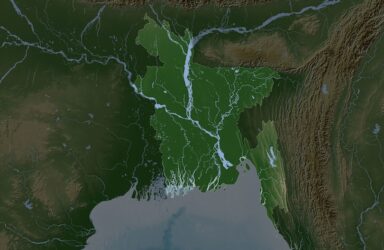Casualties of the Digital Revolution
Many have heralded the Internet as a life-enhancing medium that promotes citizen empowerment beyond the borders of nation states. Whilst there has been much talk about the beneficiaries of this revolution, there has been something of a hesitance to name the casualties.
Putin Returns
Putin will remain in power until 2024, barring assassination or revolution, and will become Russia’s longest ruling leader since Stalin. He is not known for his willingness to compromise or surrender Russia’s imperial gains, suggesting that a new time of troubles is looming on the horizon. This will indicate whether the West still sees Russia as a political part of Europe or has concluded that the country cannot be changed and the days of democratization have become a historical footnote.
Harsh Realities, Alliances, and Strategic Ambiguity: US Policy Choices in East Asia
Recent developments in the South China Sea and China’s emphasis on the modernization of its military raise important issues for the future of U.S. strategic manoeuvring in the region. What can be done to sustain future U.S. presence in Asia while tactfully maintaining a favourable position for its interests and the stability in the region?
The Responsibility to Rebuild and Libya
The responsibilities to prevent and react have been addressed in Libya, but the third stage of the R2P, “the responsibility to rebuild”, remains an ongoing issue. The extent to which the R2P can be seen as a “success” in Libya rests largely how this part of the R2P is implemented. In many respects, the “responsibility to rebuild” is the one of the most important parts of the R2P because requires intervening actors to establish a clear and effective post-intervention strategy.
Assisting refugees in protracted refugee situations: A never-ending story?
The kind of assistance a refugee really needs is the right to work, to own property, to move freely and to participate in political processes. A short-term focus on the current humanitarian crisis in Dadaab needs to be accompanied by a recognition of the fact that those who live in the refugee camps face a protracted humanitarian crisis.
Debunking a Phenomenon: the “Arab Spring” Misconception
The so called “Arab Spring” has been a popular notion in American media. US academics, journalists and politicians speak of the most recent Middle Eastern revolutionary movements as a single and similar wave of reform that they deem as one that could be defined along racial lines. Not only is this approach methodically flawed, but it also overrides a sense of remarkable national pride for individual nations.
The Long Spring to Thaw the Arab Cold War
Much was made of the changes in Egypt’s foreign policy in April when the Egyptian foreign ministry announced it would begin the process of normalizing relations with Iran and Hamas. For the moment, Egypt’s foreign policy is trying to toe a middle line and become something new for a major Arab state in the region’s cold war: a non-aligned state.
The Hydraulic Hegemon: India’s Weaponization of Transboundary Rivers
Allegations of India manipulating water flows, whether through deliberate releases or other means, breach the obligation not to cause significant harm.
Military Governance in Post-War Sri Lanka: Revisiting the Logic of Downsizing
Only when Sri Lanka’s leaders prioritise political reconciliation over perpetual securitisation will the logic of a leaner military truly take hold.
Political Conclusions of the 2025 BRICS Summit
BRICS faces a significant challenge from rising international tensions and only time will tell whether the expanded grouping can overcome such difficulties.






